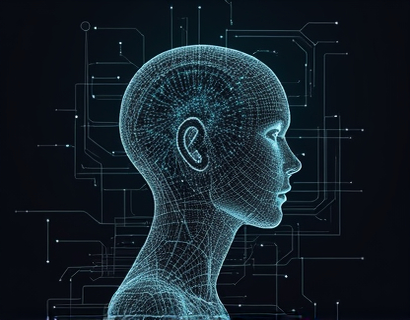AI-Generated Podcasts: Revolutionizing Audio Entertainment with Intelligent Content
The landscape of audio entertainment is undergoing a significant transformation with the advent of AI-generated podcasts. These innovative productions leverage advanced algorithms and machine learning to create immersive and engaging content, redefining how listeners interact with audio media. The integration of artificial intelligence in podcast creation is not just a novelty but a game-changer, offering unprecedented opportunities for content creators and listeners alike.
The Rise of AI in Podcasting
The concept of AI-generated podcasts may seem futuristic, but it is rapidly becoming a reality. Traditional podcasting relies heavily on human creativity and effort, from scriptwriting to voice acting. However, AI technology has advanced to the point where it can generate coherent, compelling content autonomously. This shift is driven by the increasing demand for personalized and diverse content, which AI can deliver at scale and with minimal human intervention.
AI algorithms can analyze vast amounts of data to identify trends, preferences, and patterns in listener behavior. This data-driven approach enables the creation of podcasts tailored to specific audiences, ensuring higher engagement and satisfaction. The ability to generate content quickly and efficiently also means that podcasters can experiment with new formats and topics without the usual constraints of time and resources.
How AI Creates Podcast Content
The process of AI-generated podcast creation involves several sophisticated steps. Initially, natural language processing (NLP) techniques are used to understand and generate human-like text. This involves breaking down language into its fundamental components, such as words, phrases, and sentences, and then reassembling them into coherent and contextually relevant content.
Machine learning models, particularly those based on deep learning, play a crucial role in this process. These models are trained on large datasets of audio and text, allowing them to learn the nuances of human speech and writing. For instance, a recurrent neural network (RNN) or a transformer model can be used to generate dialogue that sounds natural and authentic. These models can also adapt to different styles and tones, from formal and informative to casual and humorous.
Once the text is generated, voice synthesis technology converts the written content into spoken words. Modern text-to-speech (TTS) engines are remarkably advanced, capable of producing voices that are nearly indistinguishable from human speakers. This technology ensures that the AI-generated podcasts sound professional and engaging, enhancing the overall listening experience.
Benefits of AI-Generated Podcasts
The advantages of AI-generated podcasts are manifold. One of the most significant benefits is the scalability. Content creators can produce a vast amount of content in a short period, making it possible to launch multiple podcasts or update existing ones frequently. This is particularly beneficial for niche topics or specialized audiences that may not attract large listener bases with traditional methods.
Another advantage is the personalization aspect. AI can analyze listener data to create content that resonates with individual preferences, increasing the likelihood of retaining and growing an audience. This level of customization is challenging to achieve with human-generated content due to the time and resource constraints.
AI-generated podcasts also offer a cost-effective solution for producers. By automating many aspects of the production process, the financial burden is significantly reduced. This democratizes podcasting, allowing more people to enter the field and share their ideas without the need for substantial funding.
Enhancing Listener Engagement
Engagement is a critical factor in the success of any podcast. AI-generated content can be designed to maximize listener interaction through various techniques. For example, AI can analyze listener feedback and adjust future episodes to better meet their expectations. This iterative process ensures that the content remains relevant and engaging over time.
Interactive elements can also be integrated into AI-generated podcasts. For instance, listeners can participate in polls or quizzes during episodes, with the AI dynamically adjusting the content based on real-time responses. This interactivity not only keeps listeners engaged but also provides valuable insights into audience preferences and behaviors.
Moreover, AI can facilitate the creation of multimedia-rich podcasts by incorporating music, sound effects, and even visual elements through audio descriptions. This multi-sensory approach can enhance the storytelling and make the listening experience more immersive and enjoyable.
Challenges and Considerations
Despite the numerous benefits, AI-generated podcasts are not without challenges. One of the primary concerns is the quality and authenticity of the content. While AI has made significant strides, it still struggles with nuanced human emotions and deep, complex narratives that require a deep understanding of context and subtlety. Ensuring that AI-generated content maintains a high standard of quality and authenticity is an ongoing challenge.
Another consideration is the ethical use of AI in podcasting. Issues such as copyright infringement, misinformation, and the potential for biased content must be carefully managed. Transparency about the use of AI in content creation is essential to maintain trust with listeners.
Additionally, the reliance on data for personalization raises privacy concerns. It is crucial for podcast creators to handle listener data responsibly and comply with data protection regulations to safeguard user privacy.
The Future of AI-Generated Podcasts
The future of AI-generated podcasts looks promising, with continuous advancements in technology addressing current limitations. As machine learning models become more sophisticated, the quality and creativity of AI-generated content will continue to improve. The integration of AI with other emerging technologies, such as augmented reality (AR) and virtual reality (VR), could lead to entirely new forms of audio entertainment.
The podcasting industry is likely to see a hybrid model where human creators collaborate with AI tools to produce content. This synergy can combine the best of both worlds, leveraging AI's efficiency and scalability while maintaining the human touch that brings depth and emotion to storytelling.
In conclusion, AI-generated podcasts are revolutionizing the audio entertainment landscape by offering innovative, engaging, and personalized content. As the technology evolves, it will continue to transform how we consume and interact with audio media, opening up new possibilities for creators and listeners alike.










































